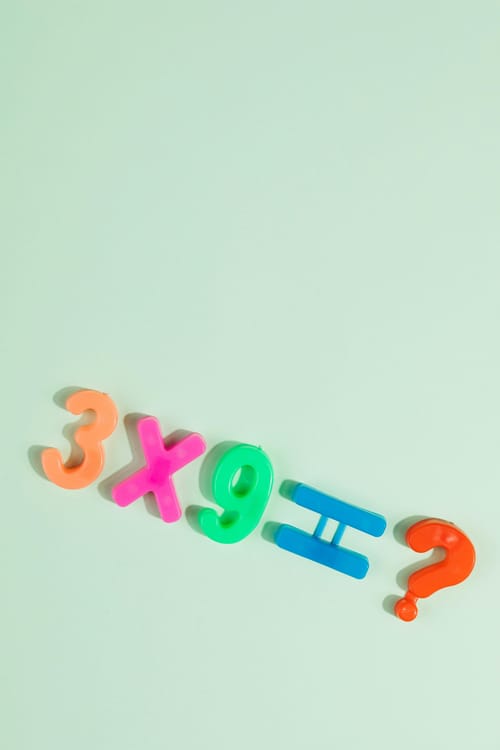A lot of people grow up thinking they’re just “not a maths person” - and it’s easy to see why. Traditional maths teaching can often put all the focus on getting the right answer, usually through one or two approved methods. If those methods don’t click for you, it’s easy to feel like you’re bad at maths altogether. It’s the perfect way to shut down curiosity and cut off a growth mindset.
I wanted to try things differently with my kids to try and avoid the 'I'm no good at this' trap. It's easy to fall into. So very early on I spent a lot of time just watching how they interacted with numbers through their play and everyday interactions. What I discovered was pretty eye-opening.
Watching and Waiting
As I watched them, I noticed that even a few weeks or months could make a big difference in how quickly they understood something. One day they might not be able to add two numbers together or count objects without touching them. A few weeks later, they could do it easily. This was without any formal teaching.
I noticed this pattern repeating with both my kids, and not just in maths. But it was maths that intrigued me the most. I'd only ever seen kids pick up these skills by being taught. Watching and waiting is not something I had much time for in school.
It's not that there's no input from me at all, it just doesn't look like traditional 'teaching.' My role is making sure they have the time to play, explore and process things without any pressure. Sometimes I'll notice an interest, like counting their money over and over again, and I'll intentionally bring some more games or real life scenarios in for more practice. But that's it. Whenever they finally grasp it is down to them.
What’s fascinating to watch is how quickly things can click into place when a skill is given time to be explored and played with - without pressure, without a set outcome, just space. When they’re ready, that sudden shift can happen almost instantly, as if all the pieces quietly lined up behind the scenes. Once you start noticing this more, it builds your trust in the learning process.
And most importantly, it's way more enjoyable for your kids, which is so important for learning maths.
The Maths Secret Weapon
One of the best ways to encourage, practise and solidify maths skills is through games - they're just brilliant.
Board games, paper-and-pen challenges, mental maths exercises and even certain video games can help develop important arithmetic skills and an understanding of basic number patterns. These form crucial building blocks for later learning.
Games allow kids to discover mathematical concepts organically and find their own ways of working things out - and that's so important!
Efficient mental and written methods can come later; first kids need the freedom to explore and play with concepts on their own terms.
This approach is much more effective than the single method often presented in workbooks and curriculums. I've found these to be better for supporting learning, but not as the main focus.
A good grasp of basic maths skills can unlock so many doors, making things easier over time - from everyday tasks like shopping, finances, cooking and telling the time, all the way to more exciting areas like coding, graphic design, art, music and even literature.
One of the best things about using games in home ed is that you're not teaching them, you're playing with them so there's no need to get into power struggles. They can challenge you too. There's no pressure or disapproval if they're not 'getting it.' Just go back to a slightly easier level so they can build up their confidence.
They're a perfect learning tool.
Unlock Confidence with Simple Games
In the Learning Toolkit you’ll find a collection of very simple and adaptable games - Play Your Way to Maths Mastery. They’re quick and effortless to set up but have made the biggest difference in my kids’ basic arithmetic skills more than any workbooks.

